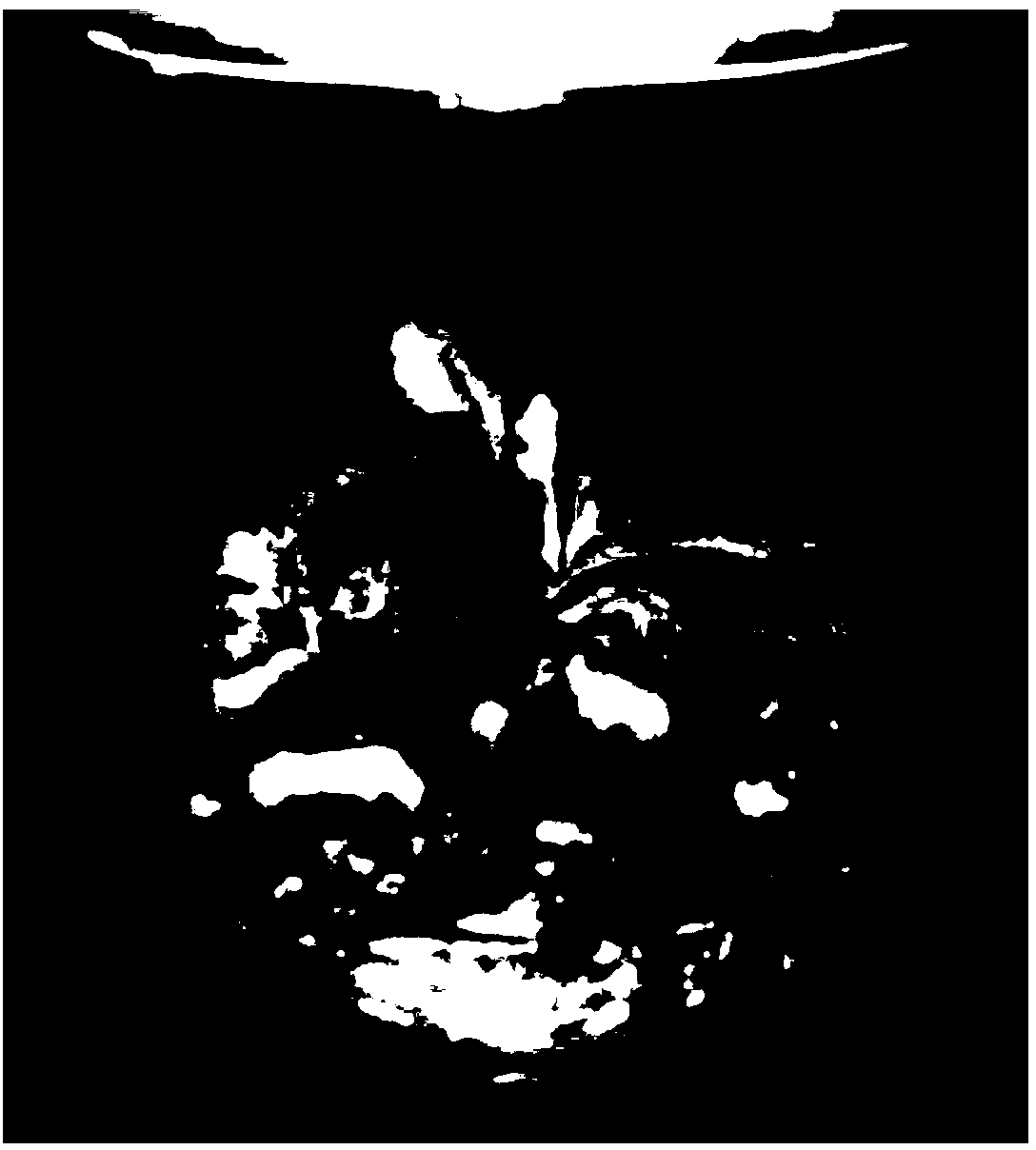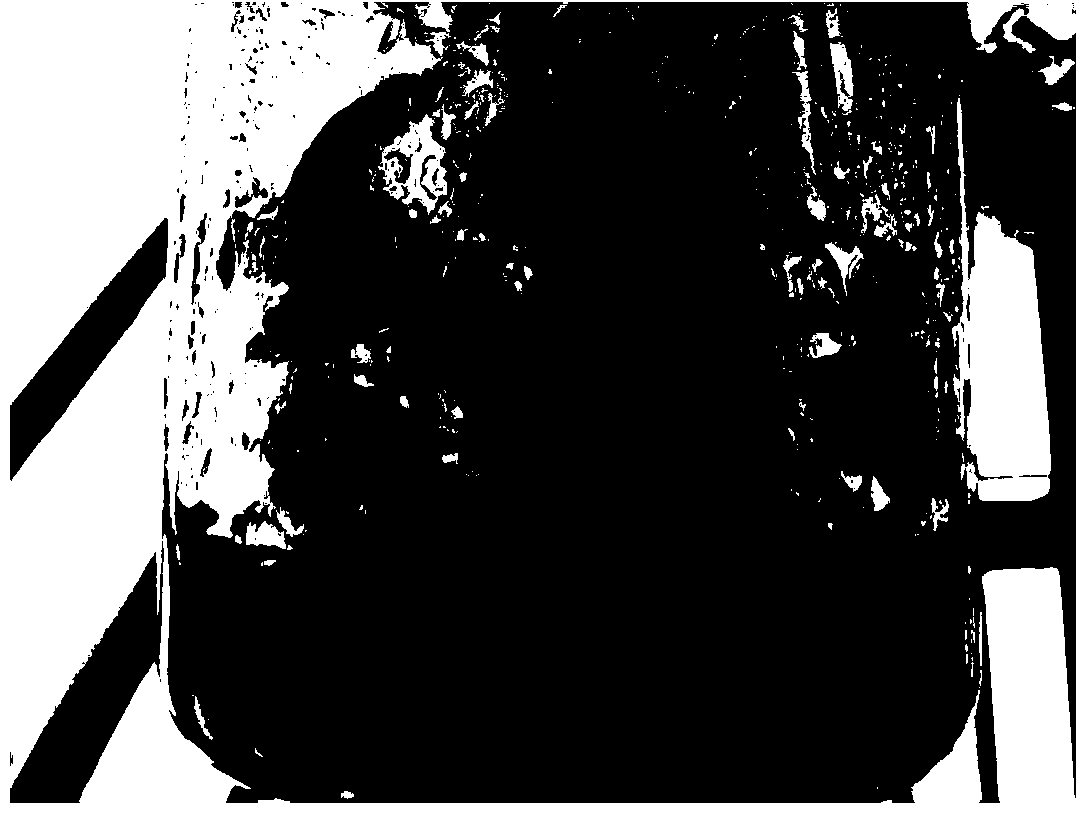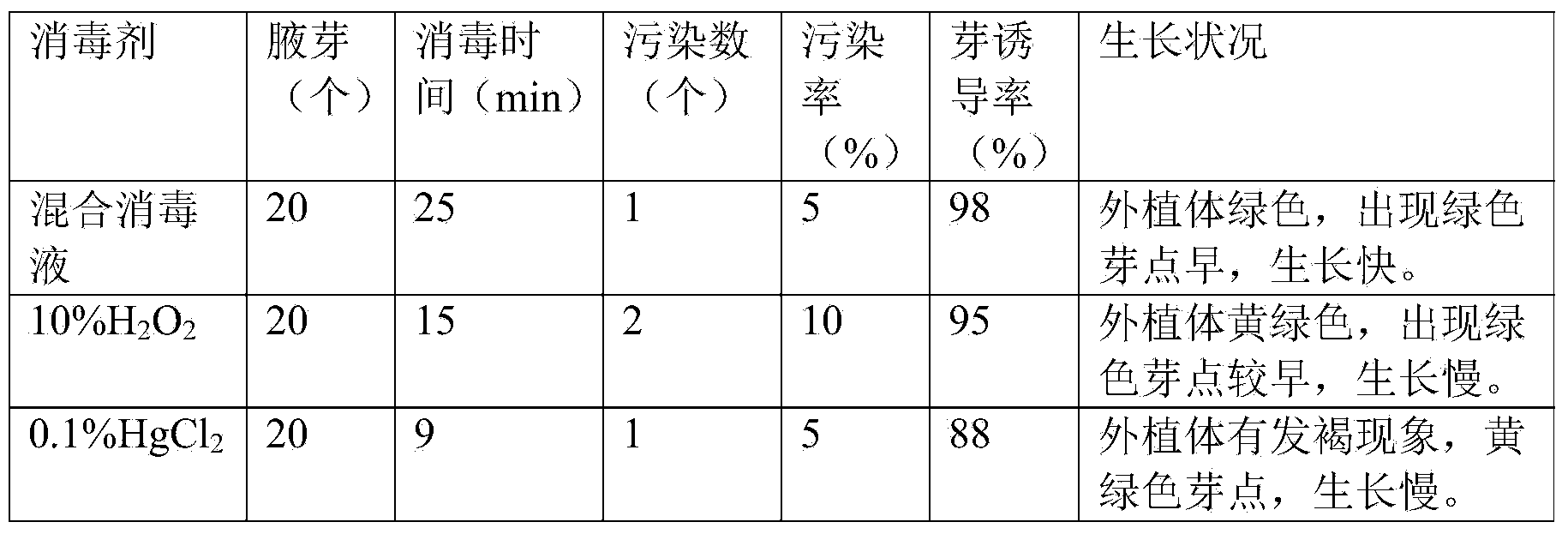Chrysanthemum morifolium tissue culturing and breeding method
A technology of tissue culture and chrysanthemum is applied in the field of plant tissue culture, which can solve the problems of affecting the excellent genetic traits of seedlings, easily mutating in proliferation, and unable to effectively remove viruses, etc., so as to improve tissue culture procedures, improve differentiation and proliferation. rate, the effect of less virus
- Summary
- Abstract
- Description
- Claims
- Application Information
AI Technical Summary
Problems solved by technology
Method used
Image
Examples
Embodiment 1
[0036] (1) Field selection: Select the Hangbaiju base in Tongxiang, Zhejiang with good growth and no pests and diseases.
[0037] (2) Obtaining and inducing culture of sterile materials: Cut the young and tender axillary buds of Chrysanthemum chrysanthemum with good growth and no pests and diseases, rinse with tap water for 0.5h, and then shake for 2mins in an aqueous solution with a volume concentration of 1% dishwashing liquid. Rinse with sterile water; soak in 70% ethanol aqueous solution by volume for 30s on the ultra-clean workbench, then soak in mixed disinfectant for 10mins, and then rinse with sterile water for 3 times; absorb the water on the sterilized filter paper, use Peel off the 0.3mm axillary bud tips with a scalpel, then inoculate the axillary bud tips into a culture bottle containing a cluster bud induction medium, cover the bottle cap and seal the bottle mouth with a parafilm, and place it in an incubator at 24°C in the presence of light. Cultivated under 150...
Embodiment 2
[0041] The effect of embodiment 2 disinfectant on the growth of chrysanthemum chrysanthemum
[0042] 10% mass concentration of hydrogen peroxide (H 2 O 2 ) aqueous solution and 0.1% mercuric chloride (HgCl) 2) two kinds of disinfectants in the aqueous solution replace the mixed disinfectant in step (2) of Example 1 to disinfect the explant material (i.e., axillary buds) of Chrysanthemum Chrysanthemum, and other operations are the same as in Example 1. The effects of induction and growth (that is, observing the growth of axillary bud tips on the clump bud induction medium), the results are shown in Table 1. The results showed that mixed disinfectant and mass concentration of 0.1% HgCl 2 The disinfection effect is basically the same, and the disinfection effect of hydrogen peroxide with a mass concentration of 10% is slightly worse, the pollution rate reaches 10%, and the growth is slow. But the mass concentration is 0.1%HgCl 2 Disinfection has an impact on the induction of...
Embodiment 3
[0045] Example 3 Effects of different hormone combinations on the induction of Chrysanthemum buds
[0046] The axillary buds of A. chrysanthemum were respectively inoculated in MS basic medium (ie, cluster bud induction medium) supplemented with different concentrations of 6-BA and NAA. Other operations were the same as those in Example 1. The results showed that the media with different hormone combinations could induce the formation of shoots to different degrees. Among them, the medium MS+6-BA1.5mg / L+NAA0.2mg / L+100mg / L glutamine is the best, which induces the most regenerated buds and grows quickly. The average bud length is 2.05cm, and the bud induction rate reaches 100%, the seedlings were large and robust, and there was no vitrified seedling phenomenon, and the incision parts of the medium without glutamine showed different degrees of browning.
[0047] Table 2 Induction effects of different hormone concentrations on the buds of Chrysanthemum
[0048]
[0049]
PUM
 Login to View More
Login to View More Abstract
Description
Claims
Application Information
 Login to View More
Login to View More - R&D
- Intellectual Property
- Life Sciences
- Materials
- Tech Scout
- Unparalleled Data Quality
- Higher Quality Content
- 60% Fewer Hallucinations
Browse by: Latest US Patents, China's latest patents, Technical Efficacy Thesaurus, Application Domain, Technology Topic, Popular Technical Reports.
© 2025 PatSnap. All rights reserved.Legal|Privacy policy|Modern Slavery Act Transparency Statement|Sitemap|About US| Contact US: help@patsnap.com



